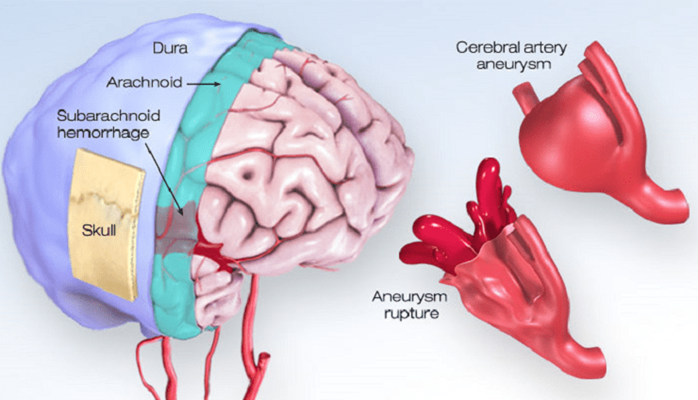The community health nurse is making a list of needed supplies in the event of a bioterrorism attack. The nurse recognizes that community members exposed to anthrax will need access to which of the following medications?
Fluconazole (Diflucan)
Ciprofloxacin (Cipro)
Varenicline (Chantix)
Potassium iodide (KI)
The Correct Answer is B
Choice A reason: Fluconazole (Diflucan) is an antifungal medication that is used to treat infections caused by fungi, such as candidiasis, cryptococcosis, and histoplasmosis. It is not effective against anthrax, which is a bacterial infection caused by Bacillus anthracis.
Choice B reason: Ciprofloxacin (Cipro) is an antibiotic medication that belongs to the class of fluoroquinolones. It is used to treat various bacterial infections, including anthrax. It works by inhibiting the DNA synthesis of the bacteria and preventing them from multiplying. Ciprofloxacin is one of the recommended medications for post-exposure prophylaxis and treatment of anthrax, according to the Centers for Disease Control and Prevention (CDC).
Choice C reason: Varenicline (Chantix) is a medication that is used to help people quit smoking. It works by blocking the effects of nicotine on the brain and reducing the cravings and withdrawal symptoms. It has no role in the prevention or treatment of anthrax.
Choice D reason: Potassium iodide (KI) is a medication that is used to protect the thyroid gland from radioactive iodine in the event of a nuclear or radiological emergency. It works by saturating the thyroid with non-radioactive iodine and preventing it from absorbing radioactive iodine. It has no role in the prevention or treatment of anthrax.

Nursing Test Bank
Naxlex Comprehensive Predictor Exams
Related Questions
Correct Answer is C
Explanation
Choice A reason: Gradual onset of several hours is not a manifestation of a hemorrhagic stroke. A hemorrhagic stroke occurs when a blood vessel in the brain bursts, causing bleeding into the surrounding tissue. This usually happens suddenly and without warning, and can cause rapid deterioration of the client's condition.
Choice B reason: Maintains consciousness is not a manifestation of a hemorrhagic stroke. A hemorrhagic stroke can cause increased intracranial pressure, which can compress the brain and impair its function. This can lead to loss of consciousness, coma, or death.
Choice C reason: Sudden severe headache is a manifestation of a hemorrhagic stroke. A hemorrhagic stroke can cause intense pain in the head, neck, or face, due to the pressure and irritation of the bleeding. The headache may be described as "the worst headache of my life" or "thunderclap headache".
Choice D reason: History of neurologic deficits lasting less than 1 hr. is not a manifestation of a hemorrhagic stroke. This is a characteristic of a transient ischemic attack (TIA), which is also known as a mini-stroke. A TIA occurs when a blood clot temporarily blocks an artery in the brain, causing temporary symptoms such as weakness, numbness, vision loss, or speech difficulty. A TIA does not cause permanent damage to the brain, but it is a warning sign of a possible future stroke.

Correct Answer is A
Explanation
Choice A reason: Scheduling energy-intensive activities at the time of day when the client has higher energy levels is the best activity plan for conserving the client's energy without compromising physical or mental health, as it allows the client to perform the tasks that require more effort and endurance when they feel more alert and capable. This can help the client to avoid fatigue, frustration, and injury, and to achieve their goals more effectively. The nurse should assess the client's individual preferences and patterns of energy fluctuation, and help them to prioritize and plan their activities accordingly.
Choice B reason: Scheduling all activities within a small block of time to allow the client a longer, uninterrupted rest period is not a good activity plan for conserving the client's energy without compromising physical or mental health, as it may cause the client to overexert themselves and deplete their energy reserves. This can lead to exhaustion, pain, and stress, and impair the client's recovery and quality of life. The nurse should advise the client to balance their activities with adequate rest periods throughout the day and to avoid doing too much or too little at once.
Choice C reason: Scheduling toilet breaks before and after any other planned activity is not a good activity plan for conserving the client's energy without compromising physical or mental health, as it may not be realistic or feasible for some clients. Some clients may have urinary or bowel problems that require them to use the toilet more frequently or urgently, such as incontinence, infection, or constipation. Forcing them to follow a rigid schedule may cause them discomfort, embarrassment, or complications. The nurse should assess the client's elimination needs and habits, and help them to manage their toileting needs in a comfortable and convenient way.
Choice D reason: Scheduling the client's hygiene activities and limiting visitors is not a good activity plan for conserving the client's energy without compromising physical or mental health, as it may neglect the client's social and emotional needs. Hygiene activities are important for maintaining the client's physical health and well-being, but they can also be tiring and challenging for some clients. Limiting visitors may reduce the noise and stimulation in the environment, but it can also isolate the client from their family and friends who can provide support and companionship. The nurse should assist the client with their hygiene needs as needed, and encourage them to interact with their visitors as tolerated.
Whether you are a student looking to ace your exams or a practicing nurse seeking to enhance your expertise , our nursing education contents will empower you with the confidence and competence to make a difference in the lives of patients and become a respected leader in the healthcare field.
Visit Naxlex, invest in your future and unlock endless possibilities with our unparalleled nursing education contents today
Report Wrong Answer on the Current Question
Do you disagree with the answer? If yes, what is your expected answer? Explain.
Kindly be descriptive with the issue you are facing.
